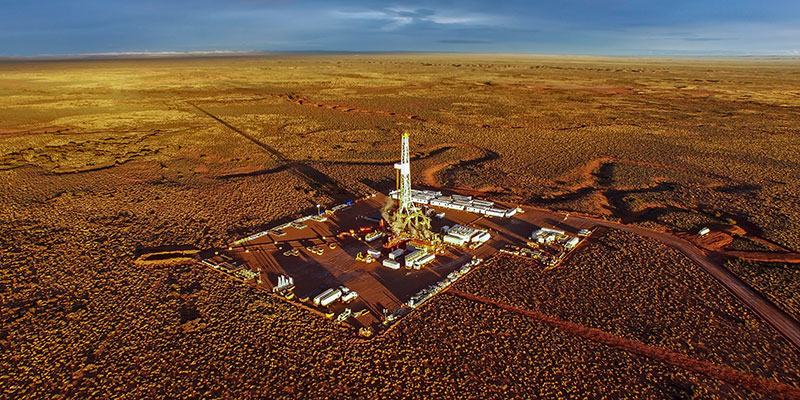When treated appropriately, produced water can provide a source of clean water that can be reused in oil and gas operations, thereby reducing the demand on natural freshwater sources.
The oil and gas industry produces billions of gallons of heavily contaminated wastewater that could be recycled into a valuable resource
The oil and gas industry is an extremely water-intensive one. Millions of gallons are used during the hydraulic fracturing process, and billions of gallons of wastewater are generated from these activities. Around 250 million barrels of produced water are generated every day, and more than 40% of it is discharged into the environment.
What Is Produced Water?
Produced water is natural water trapped in underground rock that rises to the surface because of oil and gas production. Produced water is slightly acidic and may contain minerals and metals such as arsenic, barium, calcium, iron, magnesium, and manganese; naturally occurring radioactive material; dissolved organic matter, including volatile organic compounds and hydrocarbons; dissolved gases such as hydrogen sulfide and carbon dioxide; production chemicals; and produced solids.
Environmental concerns about fracking wastewater discharges, and the cost of wastewater disposal, are leading the oil and gas industry to seek integrated wastewater management solutions.
If effectively managed, produced water can be recycled to serve as a valuable resource. When treated appropriately, it can provide a source of clean water that can be reused in oil and gas operations, thereby reducing the demand on natural freshwater. Treated wastewater can also be used for irrigation, livestock watering, cooling or industrial applications, or to augment stream flows to mitigate drought. Valuable metals can be recovered during the wastewater treatment process.
Overcoming Produced Water Recycling Challenges
However, recycling produced water is not without challenges. Although the quality of produced water can be highly variable, it can contain a wide range of toxic contaminants. High salinity levels present a common challenge. Other challenges include the cost of treatment, the location of potential users, and the quality of water needed.
With years of experience treating produced water, Fluence offers sustainable solutions for removing harmful substances so that the water can be reinjected into oil and gas wells, reused off-site, or safely discharged into the environment.
Fluence offers innovative technologies to treat produced water from oil and gas production activities, coal-bed methane, shale gas extraction, and steam-assisted gravity drainage. Our portable plug-and-play water treatment plants can be customized to target specific contaminants, including salt, oil and its derivative components, residual organic and inorganic material, and total dissolved solids to ensure water meets environmental safety standards and the requirements of the user.
If your oil and gas operation requires produced water treatment, Fluence can set up an efficient on-site treatment solution and manage it for you. With our Water Management Services, we take care of all your wastewater treatment requirements while you take care of your business.
Contact Fluence to discuss your project requirements and find out how our sustainable solutions can benefit your operation.

